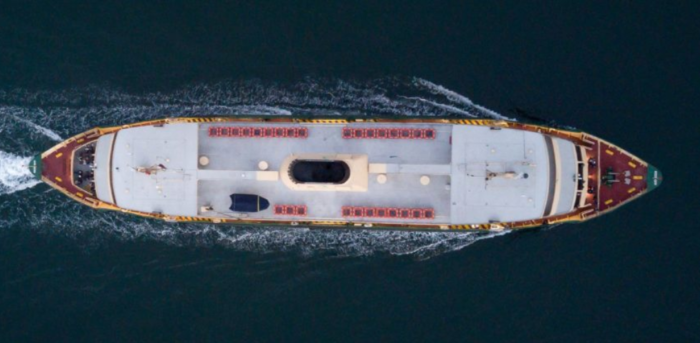A sustainable solution to shipping’s decarbonization is to adopt ‘net’ zero carbon fuels. This can be achieved through the economic performance of zero-emission ships, environmental considerations, and the development and implementation of international regulations and policies, Dr Carlo Raucci, Principal Consultant, UMAS, believes.
During January, Lloyds Register and UMAS launched a report entitled ‘Zero-Emission Vessels: Transition Pathways’ (ZEVs). The study analyzed ways in which shipping can switch to net zero carbon fuels. It specifically set out three main areas that will drive the switch to net zero carbon fuel:
- The economic performance of the ZEVs;
- Environmental considerations;
- The development and implementation of international regulations and policies.
[smlsubform prepend=”GET THE SAFETY4SEA IN YOUR INBOX!” showname=false emailtxt=”” emailholder=”Enter your email address” showsubmit=true submittxt=”Submit” jsthanks=false thankyou=”Thank you for subscribing to our mailing list”]
As Mr. Raucci says, in an article on the Global Maritime Forum, there are two key drivers for the uptake of ZEVs, namely the future price of energy sources and the related future price of the net zero carbon fuels. Future fuel prices are very important as voyage cost is one of the main costs to consider when analyzing the economic performance of a ship. What is more, regarding the oil fuels, the net zero carbon fuels have different characteristics, affecting how they are handled and stored, something that may lead to extra costs.
Environmental considerations are also very important to achieve change. Future fuels able of complying with the expected standards on GHG emissions as well as other emissions like SOx/NOx, particulates etc. Net zero carbon fuels will also need to meet stricter requirements related to emissions of air pollutants which are possible to increase.
The third key aspect in the decarbonization of shipping will be the development of strong international regulations and policies. Shipping policies entering into force over the short and medium term are likely to have a very significant impact on what technologies are developed and deployed. These actions are beginning to provide increasing certainty in the sector which can assist the enabling of finance for strategic investments aiming to ensure the supply of net zero carbon fuels to the most suitable ships.
The study also identifies three possible pathways to achieve decarbonisation. The first depends on high availability of renewable electricity, while fuels and technologies including hydrogen and ammonia produced through electrolysis could be the base of the future fuel mix.
The second pathway is based on biofuels. Taking into consideration that a fundamental change in large areas of land use is sustainable, this pathway expects ‘bio-gasoil’ and bio-methanol to cover a major share of the fuel mix.
The final pathway is made up of a mix of electric-fuels, biofuels, and hydrogen and ammonia produced from natural gas with carbon capture and storage (CCS) and is called the ‘equal mix pathway’.
In all pathways, biofuels are an important part of the fuel mix. Nevertheless, the second pathway assumes that the large availability of bio-energy capacity is boosting competitive prices for these fuels, thus making them the most reasonable option.
What is more, Dr Carlo Raucci notes that a minor role is expected in all pathways for LNG. This fuel’s viability depends on two elements: the extent the needed GHG reduction comes from in-sector efforts instead of enabling carbon market linkage, and whether it is possible to grow LNG infrastructure and achieve the return needed on these investments.
In all pathways it was assumed that despite an initial use of LNG as fuel, in the medium-term natural gas would find a greater opportunity as a feedstock (in combination with CCS) to produce hydrogen and ammonia
Mr. Raucci says.
Finally, Global Maritime Forum reports that batteries on board ships with an electric motor as the main propulsion system can play an important part as a potential energy source for very small ships and for short distances. Namely, the high cost of batteries and relatively high energy volumetric density are leading to important limitations for their use in any other type of vessel.






























































